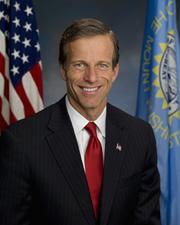0
Federal Aviation Administration Reauthorization Act of 2016
1/11/2023, 1:31 PM
Congressional Summary of S 2658
Federal Aviation Administration Reauthorization Act of 2016
This bill reauthorizes through FY2017 Federal Aviation Administration (FAA) operations and specified FAA programs.
The bill revises requirements for the airport improvement program and pilot program for passenger facility charges at nonhub airports.
The Government Accountability Office shall review privacy issues and concerns associated with the operation of unmanned aircraft (drones) in the national airspace system.
The National Institute of Standards and Technology and the FAA shall initiate a process to develop risk-based, consensus industry airworthiness standards for the safe integration of drones into the system.
The Department of Transportation (DOT) shall issue guidance for the operation of public drones.
The FAA shall carry out a pilot program for airspace hazard mitigation at airports and other critical infrastructure.
DOT shall issue a final rule authorizing the carriage of property by small drones for compensation or hire.
The FAA shall establish a Collegiate Training Initiative program for drones.
The bill requires the FAA to have a Senior Advisor for Unmanned Aircraft Systems Integration.
DOT shall establish a Safety Oversight and Certification Advisory Committee.
The FAA shall issue a final rule reorganizing the certification, and streamlining the approval of safety advancements, of small airplanes.
The FAA shall establish:
- the FAA Task Force on Flight Standards Reform, and
- a Regulatory Consistency Communications Board.
The FAA shall review and revise its safety workforce training strategy.
DOT shall take appropriate actions to promote U.S. aerospace standards, products, and services abroad.
The FAA shall:
- take specified actions to improve airline passenger safety,
- update automated weather observing systems, and
- appoint a Designated Agency Safety and Health Officer.
Pilot's Bill of Rights 2
The bill directs the FAA to issue or revise medical certification regulations to ensure that an individual may operate as a pilot of certain small aircraft if the flight and the individual meet certain criteria.
The FAA may not take enforcement action against a pilot for not holding a valid third-class medical certificate unless the FAA has published final medical certification regulations in the Federal Register.
The bill amends the Pilot's Bill of Rights to authorize an individual adversely affected by an FAA decision to deny, suspend or revoke an airman certificate to file an appeal in the U.S. district court for a de novo hearing.
The bill establishes passenger air service improvements and consumer protections.
The bill amends the FAA Modernization and Reform Act of 2012 to extend through FY2017 DOT's Advisory Committee for Aviation Consumer Protection.
DOT may issue regulations to prohibit certain cell phone voice communications during the flight of an aircraft.
The bill reauthorizes through FY2017 the essential air service program and the small community air service development program.
The FAA shall conduct a return on investment assessment on each Next Generation Air Transportation System (NextGen) program.
The bill prescribes requirements regarding:
- treatment of essential FAA employees during a furlough, and
- maximum age limits for hiring of air traffic controllers.
The bill applies federal civil service requirements to leave used by disabled armed forces veterans in the FAA personnel management system.
The bill revises requirements for overflights of National Parks.
The FAA shall continue operation of the Advanced Materials Center of Excellence.



